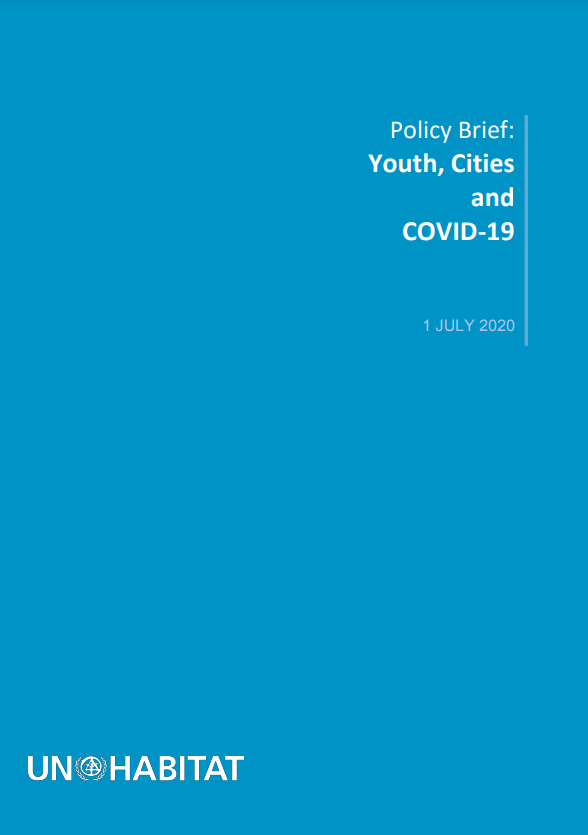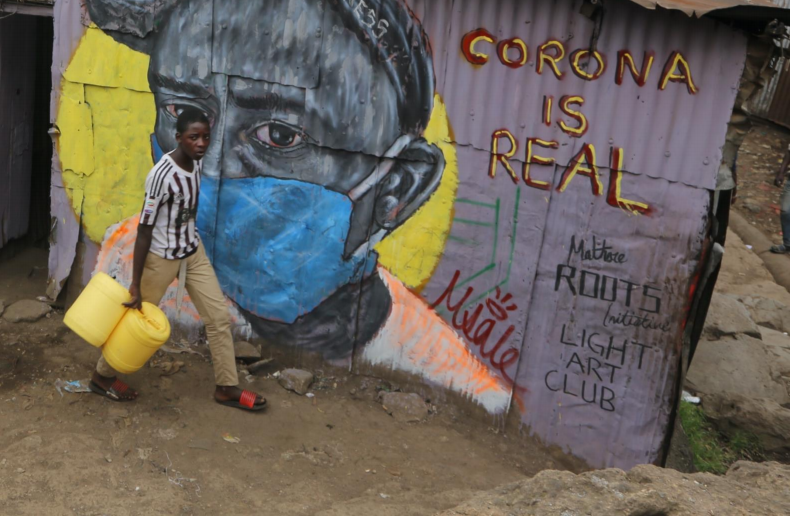Update: Final version of the Policy Brief: Youth, Cities and COVID-19
Urbanization is the engine that propels the world towards prosperity in the 21st century and youth are its engineers. Youth are society’s most essential and dynamic human resource. There are more people under the age of 30 today than ever before, totaling over three billion or almost half of the total global population. Youth between 15 and 24 years of age number 1.21 billion and account
for 15.5% of the global population, according to
the World Youth Report 2020. These youth live, by and large, in cities and towns. Fifty-five percent of the world’s population live in urban areas, which is expected to increase to 68% by 2050. It is estimated that as many as 60% of all urban dwellers will be under the age of 18 by 2030 and hopelessness, violence, and upheaval. This is the case in ‘normal’ contexts, and there is no question that a pandemic would intensify such circumstances.

The impact of COVID-19 has been felt across the globe. The pandemic has affected countries in
every region, making this a truly global situation where every country must respond. UN-Habitat
has a clear added value in supporting national and local authorities as they take up this challenge. The
pandemic will hit the world’s most vulnerable people the hardest—many of them living in
informal settlements and slums.
Slums are densely populated, with overcrowded public transport systems, little or no waste management, an absence of basic services and poor housing. These informal settlements are characterized by a lack of durable housing (permanent structures that withstand extreme climate conditions); lack of access to safe water at affordable prices and within a reasonable distance and in sufficient amounts; and lack of access to adequate sanitation provisions.
Recommended measures to prevent COVID-19 transmission such as physical distancing is often
impossible in these areas, and health facilities are minimal. “Other preventative measures are
equally challenging. Only a third of households in Africa have access to basic hand washing facilities
and in many informal settlements piped water is a luxury. And as a large majority of the workforce is
informally employed, and most cannot work from home, they still need to use public transport and
cannot follow social distancing.
As youth make up a significant portion of the global population, they will be one of the hardest hit by this pandemic but they will also be the backbone of recovery in communities. Therefore, policy responses need to include youth community groups and recognise youth in decision making to ensure positive change. To achieve this, the Youth, Cities and Covid-19 policy brief underlines three cross-cutting priorities- Download and read the full Youth, Cities and Covid-19 Policy Brief here



